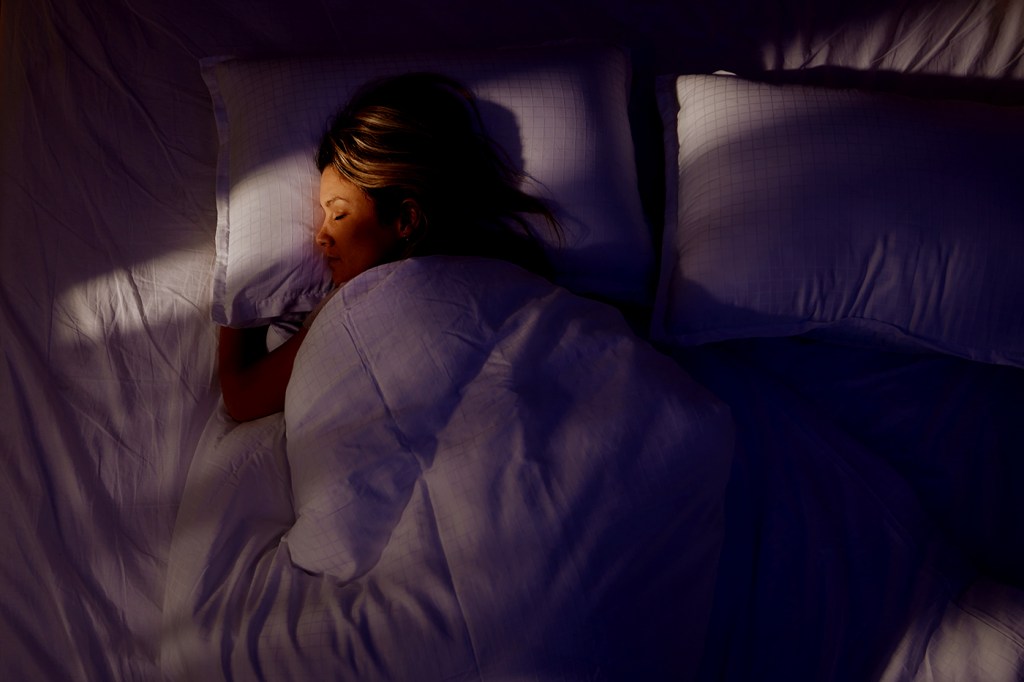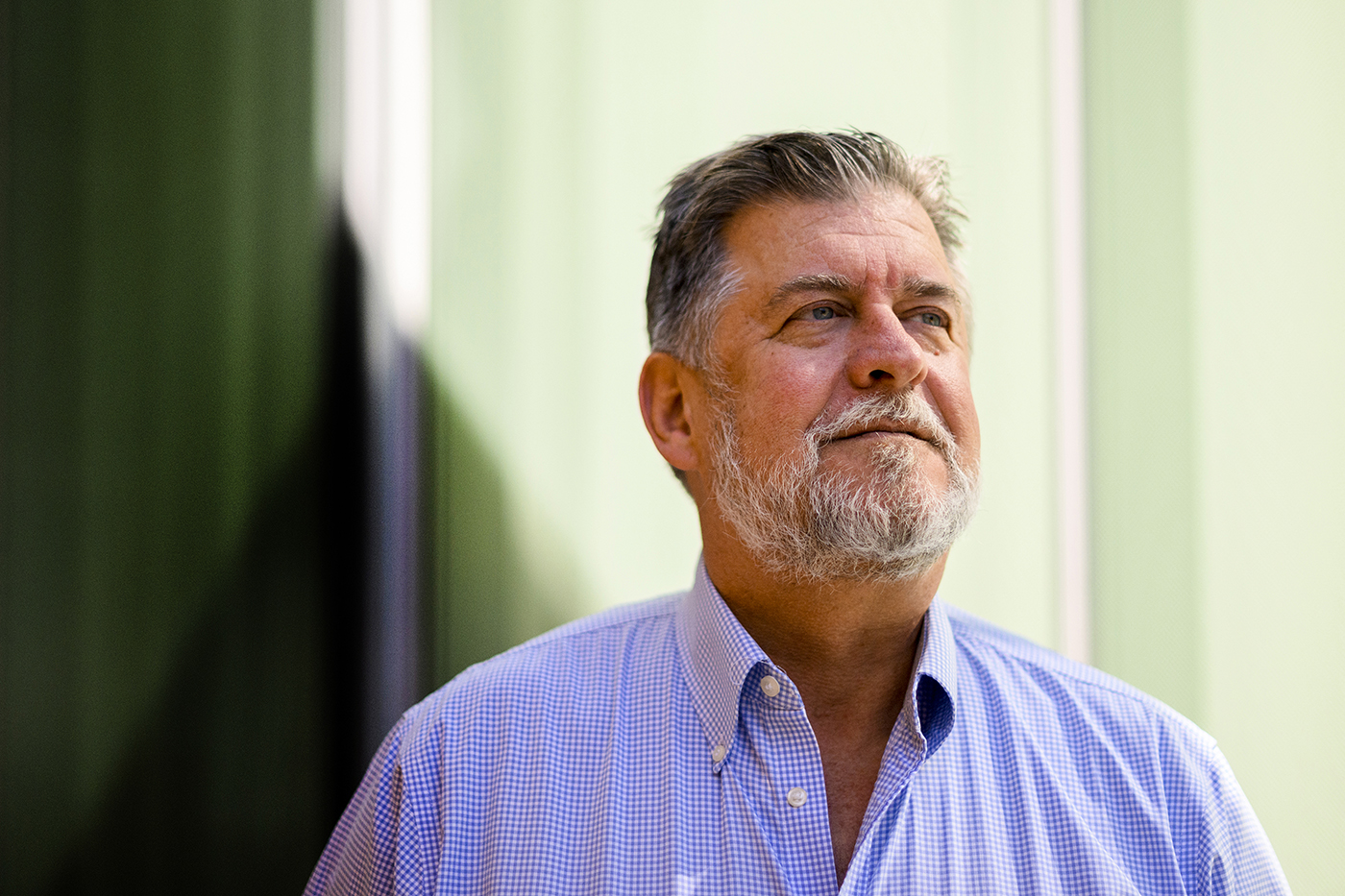Why popular sleep meds don’t actually help you get better sleep — they just sedate you, expert says

It’s midnight and you’re still wide awake.
What do you do?
A nightcap? Marijuana? Sleeping pills? Melatonin?
Neither according to researcher and pharmacist John Devlin.
“If you’re lying in bed and 30 to 50 minutes have gone by, you should get up and do something: read, listen to music, use meditation apps,” Devlin says. “But don’t look at your phone or at the TV.”
Devlin is an intensive care unit researcher at Brigham and Women’s Hospital in Boston as well as a professor of pharmacy and health systems sciences at Northeastern’s Bouve College of Health Sciences. He studies the interaction between sedating drugs and high-quality sleep — two different things, he notes — in patients, and particularly their relationship with delirium.
Sleep is a complex physiological process, Devlin says, and a better understanding of this is key to avoiding tossing and turning at night.

More than 50 million people in the United States have a sleep disorder, and more than 100 million Americans of all ages report that they don’t get an adequate amount of sleep, according to the Cleveland Clinic.
Devlin explains that there are three different components of sleep that can be evaluated.
Most people rely on their perception of sleep from the prior night.
A second method is a sleep study or physiologically monitoring sleep by measuring how people move and breathe during the sleep period and whether the electrical signals associated with sleep are actually traveling through the brain.
Finally, there is measuring a person’s circadian rhythm — the neurochemical way by which people feel tired at night and then wake up in the morning feeling refreshed.
These three components — perception, physiology and circadian rhythm — all tie in to influence whether we obtain high-quality sleep.
But most of society’s favorite insomnia remedies have limited or no effect on these key components to sleep.
Certain drugs and alcohol, for instance, are sedatives — meaning they relax you, but they actually prevent you from reaching high-quality, restorative sleep. Same with over-the-counter sleep aids and prescription insomnia medications.
“The problem is this might make people sedated and make them think they are sleeping,” Devlin says. “But it’s actually leading to poor, frequently interrupted sleep.”
In fact, Devlin notes that most of the over-the-counter drugs that people take for insomnia are antihistamines that are not approved by the Food and Drug Administration as sleep aids — for example, Benadryl or NyQuil.
And those prescription-only medications that are “proven” to help insomnia?
“The bar for approval of prescription insomnia medications is how quickly and how many hours you’re sedated; their effects on the quality of your sleep have been poorly evaluated,” Devlin says.
These medications can also have a “hangover factor,” Devlin says, where the user feels drugged and even more tired from the lingering effects of the medication and the eight hours of poor-quality sleep that they induced.
But what about melatonin? It’s natural, and it’s an important player in maintenance of normal circadian rhythm.
“It won’t do a thing for insomnia,” Devlin says. “People take it all the time because it’s over the counter, but unless people have been traveling through multiple time zones or are switching from night shift to day shift work, they will have plenty of natural melatonin in their body when it gets dark and bedtime approaches.”
Rather than medications, Devlin suggests focusing on the many non-drug, modifiable factors that may help reduce insomnia and improve sleep quality.
So, what are those factors?
First, it’s important to pay attention to your physical surroundings so that you can minimize environmental noise and stimuli.
“We use ear plugs a lot in the often-noisy hospital setting,” Devlin says. “Some people also benefit from white-noise machines.”
Daily physical activity and a regular meal schedule where the evening meal is eaten before 7 p.m. also helps regulate the levels of melatonin in your body for a balanced circadian rhythm — leading to better sleep onset.
Devlin says light, activity and eating all influence the body’s nighttime release of melatonin and daytime release of cortisol. Variations in these circadian cues, technically called “zeitgebers,” can upset the circadian rhythm and result in insomnia.
Finally, it helps to be in sound body and mind to sleep well.
Physiological impairments include sleep apnea, where your breathing repeatedly starts and stops, are usually due to an upper airway obstruction. And who hasn’t been awake worrying for hours on end?
“There’s a real psychological component to sleep as well, undiagnosed anxiety will worsen insomnia,” Devlin says.
Devlin recommends those who have persistent trouble falling asleep be screened for anxiety issues. He also recommends being screened for sleep apnea if you are over 30 years old, wake up still feeling tired after an adequate time for sleep and are known to be a regular snorer.
As for what to do at 12 a.m. on a Sunday, Devlin says you have to prepare yourself for sleep. To do so, cognitive behavioral therapy techniques — available on an app, online or through a therapist — are helpful. Other suggestions include reading or listening to calming music.
“You have to be ready to sleep,” Devlin says. “You have to go through the steps to prepare your body to sleep, to relax.”
“We are always hoping there’s a magical pill that will help — it’s the American way,” Devlin says, laughing. “But that’s not the case.”
Cyrus Moulton is a Northeastern Global News reporter. Email him at c.moulton@northeastern.edu. Follow him on Twitter@MoultonCyrus.






